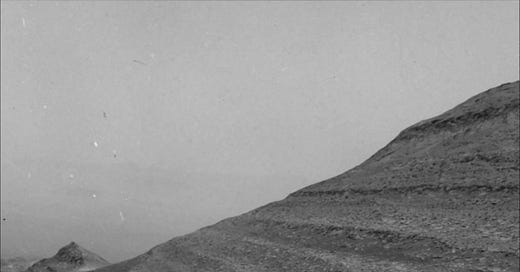
From its Mars-styled warehouse in Texas to its (alleged) ISS simulation that was accidentally broadcast out to the world this month, it’s clear that NASA loves roleplay. So, it’s no surprise that every couple of years, the agency runs a simulated war room with the Federal Emergency Management Agency – where they pretend there's an asteroid barreling towards the Earth.
Without a magnetic field like that of Earth, Mars faces the Sun’s wrath with little defenses. This article details how the recent solar radiation affected the Red Planet, and why a future Martian settlement might have to hide out in lava tubes during solar weather events.
A retired British astronaut unpacks his time in space, what it taught him about life on Earth, and why he’s coming out of retirement for the first all-British space mission scheduled for next year.
One more reminder of how much space has taught us about Earth is the Apollo-inspired global standard for food safety regulations. This historical piece explains how the food preservation systems developed for Apollo astronauts took hold in the U.S. and eventually, the world. Because even though a vacuum-sealed cheese sandwich might look more like something you'd get at Fyre Fest, it's certainly far safer.
We’re not trying to sound like a cult or new-age fitness class (hm, maybe that’s a repetitive sentence) when we say that three days can change your life. In space, three days really can change your physiology in a lasting way, according to a new paper. Not to be dramatic, or anything.
There might be a rise in bear apologists right now, but what if we told you that, just like bears, black holes could hibernate? According to comforting new research, a dormant black hole can “roar” back to life. Knowing that, are we still choosing the
bearblack hole?
Space Video of the Week:
Saturday Space Jam:
This edition of Saturday Space Reads is brought to you by the Center for Space Resources (CSR) at the Colorado School of Mines.





